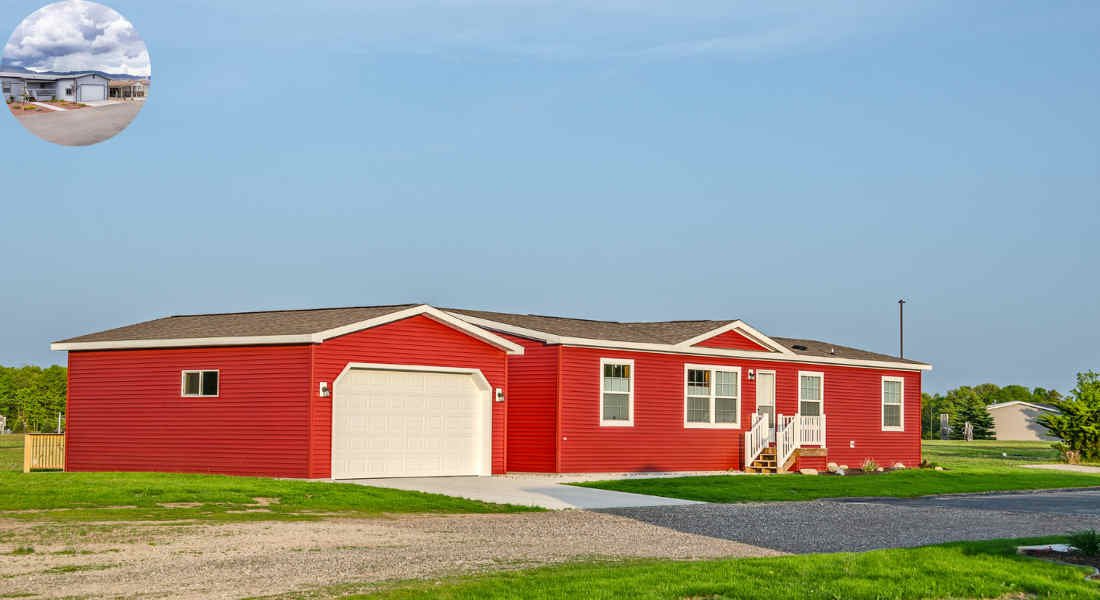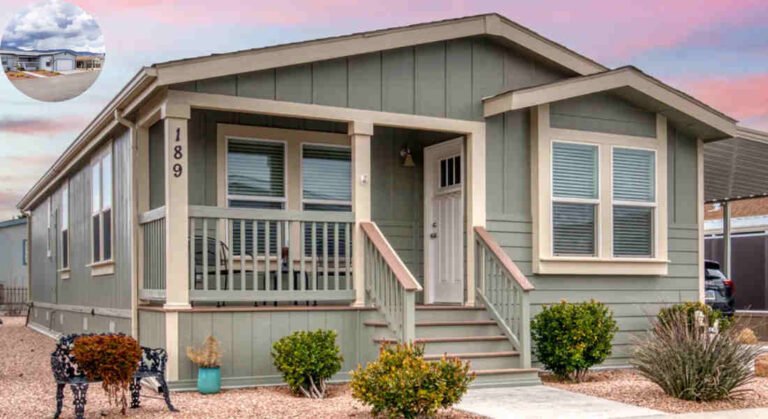When it comes to manufactured homes, many homeowners are surprised to learn that their property may be subject to taxes, just like traditional site-built homes. Understanding how taxes apply is essential for budgeting and compliance, whether you own the land and the house or just the house itself. This article explores the reality behind property taxes on manufactured homes, clarifying common misconceptions and highlighting how these taxes are calculated and collected and what you can expect as an owner.
Understanding the Tax System for Manufactured Homes
The tax system for manufactured homes can be quite different from that of traditional houses. It’s essential to grasp the basics before diving deeper into specifics.
Manufactured homes are often classified as personal property, which means they may not be taxed like real estate. This classification varies by state and local government regulations.
In many cases, if a manufactured home is permanently affixed to land you own, it might be treated like real property for tax purposes. This distinction changes how taxes are assessed and what exemptions could apply.
Local ordinances often play a significant role in determining tax rates and obligations. Each municipality may have unique assessment rules, so knowing your local laws is crucial for navigating this complex landscape effectively.
Tax Differences between Traditional Homes and Manufactured Homes
Regarding taxes, traditional and m, manufactured homes aren’t treated the same way. Traditional houses often fall under real property taxation, which can lead to higher rates based on their assessed value.
Manufactured homes, however, might be classified differently depending on state laws. Some states tax them as personal property rather than real estate. This distinction can significantly impact how much you end up paying each year.
While traditional homeowners may see slow appreciation over time, manufactured homes can depreciate faster due to their classification as personal property in some cases.
Location also plays a crucial role. Local regulations dictate specific tax structures for manufactured housing communities in certain areas versus standalone traditional properties. Knowing these differences is essential for understanding your financial obligations related to homeownership.
You may also read (does insurance cover home modifications for accessibility).
Factors that Impact Taxes on Manufactured Homes
Several factors come into play when determining taxes on manufactured homes. Location is crucial, as different states and counties have varying tax rates and regulations. Understanding local laws is essential.
The age of the home can also impact taxation. Older models may be subject to different assessment methods than newer ones, affecting their taxable value.
This classification will dictate how it’s taxed and could lead to differing liabilities.
Improvements made to the property can increase its assessed value, too. Renovations often lead to higher taxes if they elevate the home’s overall worth.
Income levels in certain areas influence local tax policies, indirectly affecting manufactured homeowners through community assessments or levies.
Common Misconceptions about Taxes on Manufactured Homes
Many people believe that manufactured homes are exempt from property taxes. This is far from the truth. Like traditional homes, manufactured homes are subject to local and state taxation.
While many lose value over time, some can appreciate depending on market demand and location. It’s essential to research your specific situation.
Some assume that taxes on these properties are standardized across the board. However, tax rates vary significantly based on location and whether the home is classified as personal or real property.
Many homeowners think they won’t owe anything if their home is in a park or community with land leases. Even in those cases, tax obligations may still be tied to the unit itself rather than the land it sits upon. Understanding these nuances helps clarify what you might owe come tax time.
You may also read (how to handle a denied home insurance claim).
How to Minimize Taxes on Manufactured Homes
Minimizing taxes on manufactured homes can be a savvy move for homeowners. One effective strategy is to take advantage of available deductions. Keep track of all expenses related to your home, such as property maintenance and improvements.
Consider the location of your manufactured home, too. Some states offer tax incentives or exemptions specific to manufactured housing. Research local laws and regulations; they could save you money.
Different tax rules may apply if it’s considered personal property rather than real estate. This distinction can significantly impact what you owe annually.
Engaging with a tax professional familiar with manufactured homes can provide tailored advice that aligns with your situation. They can help uncover lesser-known deductions or credits applicable in your state.
Staying updated on changes in tax legislation ensures you’re not missing out on new opportunities for savings over time.
Resources for Navigating Taxes on Manufactured Homes
Navigating the tax landscape for manufactured homes can be complex. However, several resources are available to guide you through this process.
Local government websites often provide crucial information on property taxes and regulations specific to your area. They may also offer downloadable forms and detailed instructions that simplify filing.
Professional tax advisors specialize in real estate and can assist with understanding local laws regarding manufactured homes. Their expertise might save you time and money by ensuring you comply with all requirements while maximizing any potential deductions or credits.
Online forums and communities dedicated to manufactured homeowners can also be valuable sources of support. Members share their experiences, tips, and advice about navigating taxes effectively based on their journeys.
For those who prefer self-study, various online courses focus on real estate taxation. These educational materials equip you with knowledge about tax obligations related to manufactured homes, so you feel more confident managing your finances.
With these resources, you’ll find it easier to tackle questions like “Do you pay taxes on manufactured homes?” Knowing where to turn for accurate information makes the journey less daunting than it initially seems.
You may also read (does a fireplace really increase home value).
